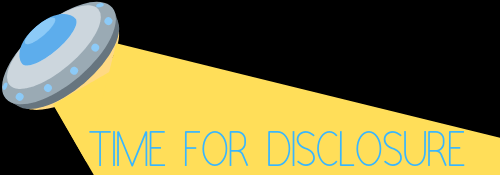Aliens & UFO’s

The pandemic demonstrated how politicians and scientists will respond to a sudden global threat to all of humanity.
People spend a lot of resources and energy looking for alien life. However, what will we do if we do find life on other planets or the aliens themselves find us? According to experts, the pandemic has given a clear understanding of the precautionary measures.
In search of extraterrestrial intelligence, humanity spends a huge amount of effort and money. Suffice it to say that businessman Yuri Milner invested $ 100 million in the SETI project, which is purposefully engaged in the search for extraterrestrial civilizations.

Both events were considered by scientists as hypothetically possible, but essentially unforeseen.
Photo: GLOBAL LOOK PRESS
The cost of the James Webb Space Telescope, which will look out for habitable planets, is approaching $ 10 billion. Who seeks will always find! But what will we do if aliens get in touch with us? Who and how will manage this contact on behalf and in the interests of all mankind?
Physicist Peter Hatfield and referendum researcher Leah Trublud of the University of Oxford believe the Covid-19 pandemic is the perfect rehearsal for first contact with extraterrestrial intelligence and can provide clues for policymakers and scientists to avoid fatal decision-making mistakes. The scientists presented their arguments in the preprint of the article “SETI and Democracy” published on the website of Cornell University.
“We believe there are clear analogies between the COVID-19 crisis and First Contact,” said Hatfield and Trublad.
The article provides five criteria for similarity:
This event is of fundamental scientific nature;
It will have enormous social, moral, economic and political consequences;
This is a global phenomenon that will affect every person on Earth;
Contact with extraterrestrial intelligence is a potentially global “external” threat (there is no guarantee that an alien civilization will be friendly), it puts all of humanity on one side of the “barricade” (unlike, say, the Second World War);
It will happen suddenly. Humanity will not be ready for the First Contact in the same way as for COVID-19. Both events were considered by scientists as hypothetically possible, but essentially unforeseen.
Not all politicians can be trusted to negotiate with aliens. For example, Donald Trump, fearing for the economy, introduced quarantine measures at the last moment, and Belarus did not recognize the presence of coronavirus at all. Scientists decided to conduct a survey among two thousand Britons to find out who they would entrust the negotiations. As it turned out, people would choose a team of scientists (39% of votes).
To begin with, the researchers decided to ask the people themselves. On behalf of scientists, the British agency Survation conducted a survey in which 2,000 residents of the UK took part.
The volunteers were asked the question: “Imagine a scenario in which scientists receive an unambiguous message from aliens on a distant planet. Who, in your opinion, should determine the content of the reply message? ” The answers were distributed as follows:
1. A team of scientists – 39%
2. Elected representatives (politicians) – 15%
3. National referendum – 11%
4. A meeting of citizens from randomly selected adults – 11%
5. I don’t know – 23%
The poll showed that citizens rely more on the opinion of scientists. Scientists also play a key role in the fight against COVID-19, but we must honestly admit that they most often play the role of second violin, politicians still come to the fore. Although they do not understand a pandemic.
Most likely, it will be so in the situation of First Contact. However, Peter Hetfield and Leah Trublud are far from the idea that politicians should be driven from the levers of control with a nasty broom in such cases.
– The key to making the right decision is the balance between expertise and judgment. – say the authors of the study. – When experts have clear answers to questions, it is better to trust scientists. But if science does not have a consensus or too little is known about a new phenomenon (as in the case of COVID-19 or First Contact), then traditional political representation may be more appropriate.
In the course of the pandemic, people faced an unusual picture when the opinion of science ceased to be the ultimate truth. Some scientists acted as advisers to the government. But at the same time, the governments of different countries, relying on the opinions of scientists, made diametrically opposite decisions – for example, the Swedish or British model of combating the coronavirus.
In a number of cases, reputable researchers publicly made recommendations that directly contradicted official rules. This concerned, for example, the appropriateness of the mandatory wearing of gloves or the use of medical masks on the street. And some covid dissidents insisted that precautions are generally superfluous – people at risk should adhere to them, and everyone else needs to get sick as soon as possible in order to achieve herd immunity as soon as possible.
As a result, we saw how different groups of scientists openly conflict with each other. Most likely, such a situation will arise during the First Contact: humanity will not have a single scientifically substantiated answer.
Based on the experience of the COVID-19 pandemic, Hatfield and Trublud believe that the body that will manage contact with aliens should have maximum legitimacy, that is, public trust. One option is to form a group of scientists who will be appointed not by national states, but by a variety of reputable expert organizations. Ideally, the elected representatives of the authorities who have experience in real science should negotiate with the aliens.
BTW
Most people are not afraid of aliens!
As part of the poll, which we wrote about above, two thousand British respondents were asked a second question: “In the event of a planetary referendum on how to respond to messages from aliens, would you vote to establish contact? Or would you rather not come into contact with extraterrestrial intelligence? “
Here is what the survey participants answered:
1. Vote for establishing contact with aliens – 56%
2. Vote not to make contact – 13%
3. Wouldn’t vote – 10%.
4. I don’t know – 21%
Unfortunately, politicians play a key role. They are the ones who dictate to scientists how to behave and what to say. People in power understand little, but they are trying to do something. This was the case at the beginning of the pandemic and will be during the first contact with humanoids.

